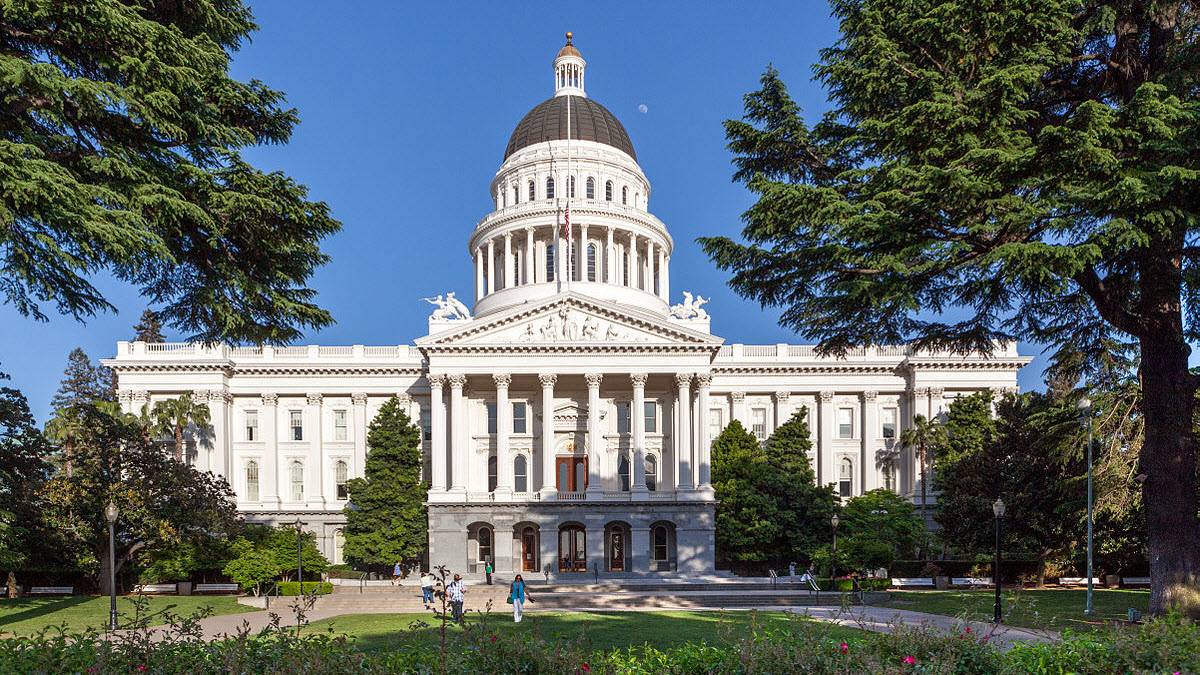Stakeholders Vet California Net Re-regulation

The smarter way to stay on top of broadcasting and cable industry. Sign up below
You are now subscribed
Your newsletter sign-up was successful
The Trump Administration's response to Gov. Jerry Brown's signing Sunday (Sept. 30) of California's tough new net neutrality law was swift and definitive: Justice is suing the state. But there was plenty of other reaction to the effort to re-regulate broadband access in the face of the FCC's order that such efforts were preempted.
“While not surprising, California’s net neutrality effort reaffirms its leaders’ total lack of understanding of how technology or our economy actually works, particularly its ban on paid prioritization," said FCC commissioner Michael O'Rielly, who voted to deregulate ISPs and eliminate the rules against blocking, throttling and paid prioritization. "If allowed to stand, the law would be incredibly detrimental to American consumers and the continued growth of the Internet. Thankfully, this is precisely why our nation’s founding fathers crafted a Commerce Clause to the U.S. Constitution and why I pushed so hard for the Commission’s December action to include strong preemption provisions. The DOJ’s action to challenge this overreach is both appreciated and appropriate."
Democratic commissioner Jessica Rosenworcel, who strongly opposed the elimination of the rules, saw it a lot differently, and tweeted her thanks to the governor.
[embed]https://twitter.com/JRosenworcel/status/1046554401647841281[/embed]
“The enactment of California’s net neutrality law is a huge victory for the free and open internet,” said Sen. Ed Markey (D-Mass.). “California has shown Washington and the rest of the country that the internet warriors fighting to save net neutrality will not be stopped."
The Taxpayers Protection Alliance argues that new net regs will leave taxpayers on the hook as the feds and states battle it out in court using taxpayer dollars. Then there is the less free data and reduced investment, which it says will not benefit the state's "struggling households." Paid prioritization is a way for companies to subsidize bandwidth use for a particular service, which supporters like the alliance say is consumer-friendly and opponents say is a way to favor one service over another, which isn't neutral.
"[P]assing massive and intrusive internet regulations means fewer options for consumers and internet providers," said Taxpayers Protection Alliance president David Williams. "[T]outed by the law’s backers will be few and far between. Recent data from the Wehe app shows that, even in the post-Title II world, throttling is rare and used solely for network management."
The smarter way to stay on top of broadcasting and cable industry. Sign up below
Demand Progress and Public Knowledge, some of net neutrality rules' biggest backers, were celebrating Sunday.
"This is a big day for net neutrality," said Robert Cruickshank, campaign director at Demand Progress. "Gov. Jerry Brown has just restored a free and open internet to the 40 million people of California — the world’s fifth largest economy and home to many major tech companies. This law passed with a large bipartisan majority thanks to an unprecedented outpouring of community activism the likes of which Sacramento has not seen for some time. We now urge the U.S. House of Representatives, especially members representing California, to quickly sign the discharge petition and force a vote to use the Congressional Review Act to restore net neutrality for all 50 states.”
"As is often the case, California is setting a strong example for Congress and other states on the type of net neutrality protections an overwhelming majority of Americans expect," said Public Knowledge VP Chris Lewis.
"Only in Washington D.C. is this controversial due to the influence of broadband provider lobbyists. Even in California, that influence was strong, but an outpouring of support from consumers and small businesses helped to remind policymakers just how popular net neutrality protections are."
The Writers Guild of American West was also pleased. Content creators are concerned about distributors having too much power over the internet, which they see as an alternative to traditional video distribution channels already controlled by consolidated companies.
Related: Amazon Slams California Privacy Law
"Once enacted, this landmark net neutrality legislation will serve as a model for states nationwide to follow," said the guild. "The Internet today is where we connect, where we organize and speak freely, and where we can choose what content we consume. With increasing attacks on our First Amendment rights and widespread corporate concentration, preserving an open Internet free from ISP interference is more important now than ever.”
U.S. Telecom, which represents ISPs, called for a 50-state legislative framework for protecting net neutrality. “We all support strong and enforceable net neutrality protections for every American – regardless of where they may live," said USTelecom president Jonathan Spalter. "But this bill is neither the way to get there, nor will it help advance the promise and potential of California’s innovation DNA," he said. "Rather than 50 states stepping in with their own conflicting open internet solutions, we need Congress to step up with a national framework for the whole internet ecosystem and resolve this issue once and for all.”
"This is a true grassroots victory," said California-based progressive group. CREDO Action. "Today, Californians won out against one of the most powerful lobbies in Sacramento. AT&T and other Big Telecom companies opposed this bill with everything they had. Thanks to hundreds of thousands of activists who would not give up the fight against all odds, Californians will have real, meaningful net neutrality protections. We thank Gov. Brown for standing with us and protecting the future of the internet and all our communities who depend on it."
The bill does not go into effect until 2020.
Contributing editor John Eggerton has been an editor and/or writer on media regulation, legislation and policy for over four decades, including covering the FCC, FTC, Congress, the major media trade associations, and the federal courts. In addition to Multichannel News and Broadcasting + Cable, his work has appeared in Radio World, TV Technology, TV Fax, This Week in Consumer Electronics, Variety and the Encyclopedia Britannica.

